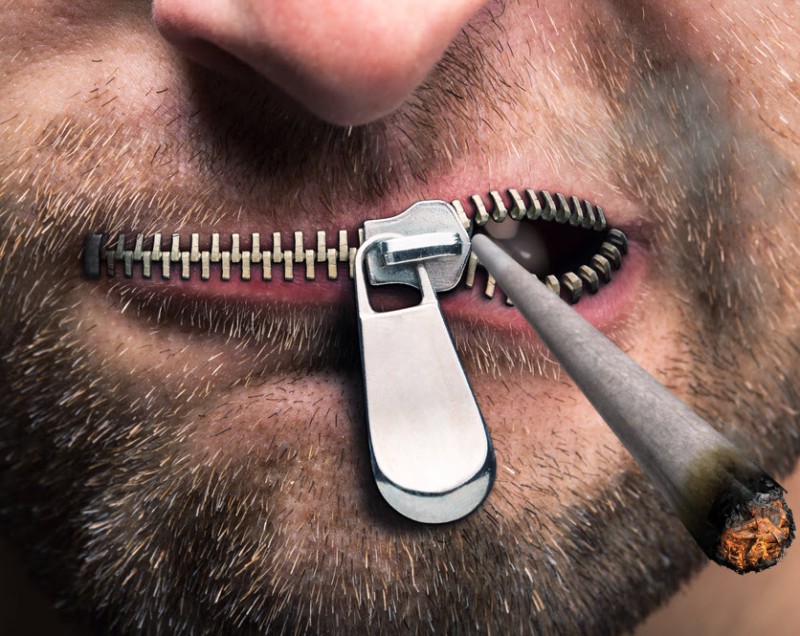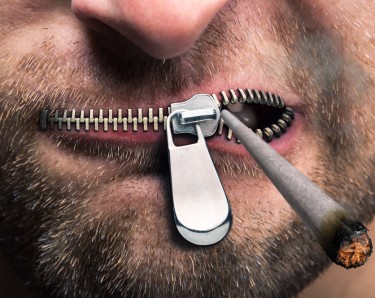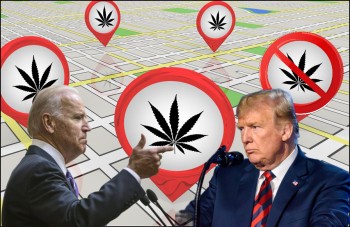Employers Embrace Cannabis Use: Fed Agencies, Amazon, and the ATF Now Allow You to Smoke Weed and Still Work for Them
As the workforce undergoes a generational shift, with older generations more aligned with Nancy Reagan's ideology retiring, the government and employers are compelled to bring in younger workers. These recruits grew up in an era where cannabis is perceived as a medicinal and relatively harmless way to unwind and enhance one's life.
Regardless of their personal opinions, the federal authorities and employers are aware of the poll results indicating that over 50% of Americans use and support cannabis legalization. While medical marijuana use is legal in 38 states and Washington D.C., recreational use is permitted in 22 states. Despite this, the situation is paradoxical as cannabis remains illegal under federal law.
To clarify, the federal government has not authorized its employees to use cannabis. So, what exactly is changing?
The F.B.I., C.I.A., and Military Are Relaxing Cannabis-related Policies
In the past, simply admitting to cannabis use would disqualify individuals from numerous federal jobs. However, now agencies are relaxing their policies regarding prior marijuana usage. According to The New York Times, 3,400 newly-enlisted military personnel who tested positive for drugs on their first day were granted a second chance in the last five years.
Additionally, President Biden is anticipated to discontinue scrutinizing applicants' historical cannabis use when applying for security clearances.
Traditionally, the C.I.A. advised potential applicants to abstain from cannabis use for a year before submitting their application. However, in April 2020, they reduced this period to just 90 days. Similarly, the F.B.I. reduced its abstinence requirement from three years to a year in 2021.
Ironically, the Office of Personnel Management has decided to cease categorizing individuals with a history of cannabis usage as security risks. This has simplified the security clearance screening process.
Presently, one must disclose any illegal drug use in the past seven years to apply for security clearance. This is done in detail, similar to Scientology's practice of forcing new members to confess wrongdoing. However, the updated regulations would shorten this timeline to five years.
Concerning cannabis, job applicants must only report any usage within 90 days before applying. This acknowledges the comparatively lower risks associated with cannabis usage than other drugs. Interestingly, the federal government classifies cannabis as a Schedule I drug and cocaine as a Schedule II drug. This means the government's official stance is that cocaine is less dangerous than cannabis.
Between 2018 and 2022, the Army excused over 3,300 recruits who failed a drug test or confessed to past drug use. Among the military branches, the Army appears to be the most lenient. The Navy has historically adopted a zero-tolerance policy for recruits who fail their drug test. However, they recently began allowing recruits to take a second test after 90 days if they failed the initial one. The Air Force and the Marine Corps have also followed suit by offering second chances to recruits.
The federal government must contend with the private sector in the current job market following the COVID-19 pandemic. With many individuals working from home, they have the flexibility to keep their vape nearby for a quick energy boost if needed. The pandemic and the resulting economic crisis compelled the authorities to loosen their stringent policies. However, whether they will eventually recognize that even their newfound leniency is outdated remains to be seen.
Amazon Takes a Progressive Stance
As companies grapple with a shortage of skilled workers, Amazon suggests that its smaller business associates managing delivery vehicles refrain from screening drivers for cannabis consumption.
In June 2021, the major retail corporation declared that it would alter its drug-testing protocol for U.S. field operation units and, in various circumstances, would no longer conduct screenings for marijuana. Dave Clark, a retail executive at Amazon, stated that, similar to several other employers in the past, we have previously denied employment opportunities to individuals at Amazon based on testing positive for cannabis use.
Nevertheless, considering the recent development of state laws throughout the U.S., Amazon has decided to alter its approach. The company will no longer incorporate cannabis in their all-encompassing drug testing program for any positions that the Department of Transportation does not regulate. They will treat cannabis akin to alcohol consumption.
The Bureau of Alcohol, Tobacco, Firearms and Explosives (A.T.F.) Makes New Policy Change
The A.T.F. has revised its hiring policy to ensure that candidates who have cultivated, produced, or distributed marijuana in adherence to state regulations while serving in a "public responsibility" role will no longer be automatically disqualified. However, those who engaged in such activities defying state cannabis regulations will not be considered.
The recent change in policy by the federal law enforcement agency is noteworthy. This is because it explicitly distinguishes applicants who followed state legalization laws regarding cannabis and those who engaged in illicit cannabis-related activities. This distinction is particularly significant given the continuing federal prohibition of marijuana.
The federal government has claimed that its drug laws override state laws for years. However, the A.T.F., under the Department of Justice, has introduced a new employment policy distinguishing legal and illegal marijuana activities in states.
Under the new employment policy of the A.T.F., applicants who have participated in state-legal cannabis activities will no longer be automatically disqualified. But it's still possible for them to be denied employment, especially if the activity occurred while serving in a position of public responsibility.
Conclusion
The employment policies in many industries, from federal agencies to private firms, continue to impact the changing attitudes regarding cannabis usage and legalization significantly. While some businesses are still catching up with the times, others are starting to understand that they must change to remain competitive in the labour market and draw top talent.
As additional states legalize cannabis for medical and recreational uses in the future, it will be interesting to see how employment policies change. If the federal government eventually implements it, comparable procedures are still available. The debate over marijuana use and how it affects the workplace, however, is far from over.
WORKFORCE CANNABIS USE, READ ON...
WHY WORKPLACE DRUG TESTING IS DISCRIMINATION, READ THIS!








